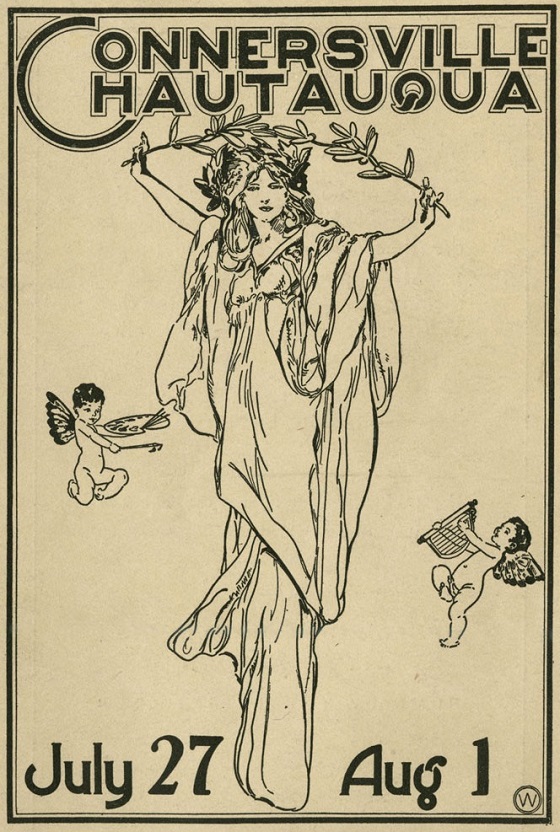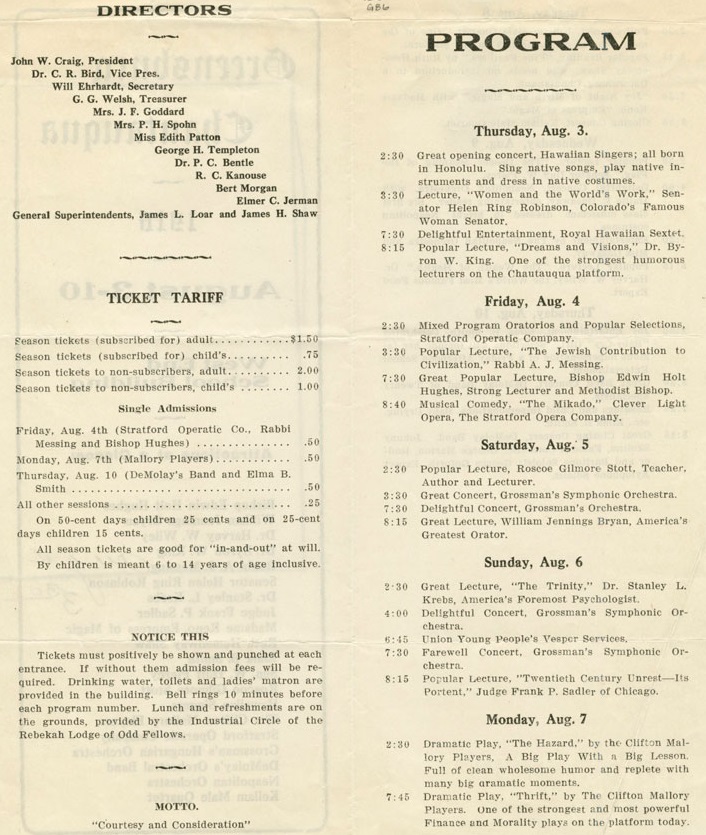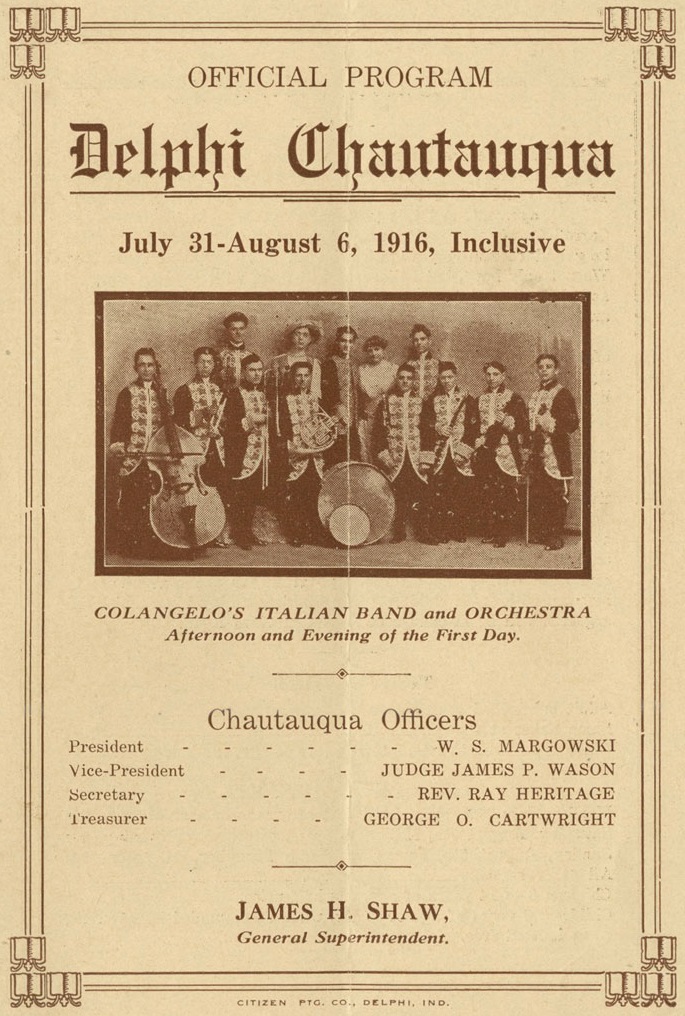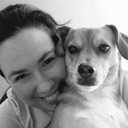
Purchase Tickets
From the Cataloger’s Desk: Indiana Chautauquas
August 24, 2020

I recently cataloged programs for Chautauqua gatherings in several cities throughout the state of Indiana: Delphi, Greensburg and Connersville. This inspired me to learn about the Chautauqua movement, which was popular in the United States during the late 19th and early 20th centuries and brought culture and entertainment to many communities.
The Chautauqua Institution, originally called the Chautauqua Lake Sunday School Assembly, was founded in 1874 by John Heyl Vincent, an educator and Methodist bishop, and Lewis Miller, an inventor and businessman. It began as an experiment in vacation learning for Sunday school teachers and church workers on the shores of Chautauqua Lake, New York. Due to the success of initial gatherings, additional courses in art, music and physical education were offered, as well as entertainment in the form of concerts, readings and plays.
The popularity of this original New York “Mother” Chautauqua led to the creation of independent “Daughter” Chautauquas throughout the country, as well as traveling “Circuit” or “Tent” Chautauquas. The movement peaked in the 1920s; however, there are some Chautauquas that have been in operation continuously since then, and others that have been revived in more recent years.

Greensburg Chautauqua program, 1916, IHS Collection
The three programs recently added to our collection are from the summers of 1916-1917, and include information about the individual Chautauquas, as well as ticket prices, daily event schedules and biographies of speakers and performers. The Connersville program also includes some great advertisements for local businesses. Due to the proximity of these Chautauquas in terms of both date and location, there are a few repeat acts. For example, Dr. Byron W. King delivered his lecture, “Dreams and Visions,” at the Greensburg and Connersville Chautauquas, the Royal Hawaiian Singers provided musical entertainment at the Delphi and Greensburg Chautauquas, and Rabbi A.J. Messing addressed all three Chautauqua gatherings with his lecture, “The Jewish Contribution to Civilization.”
There are some pretty famous names that stand out, as well. Roscoe C. Simmons, nephew of Booker T. Washington, delivered a speech in Connersville. Helen Ring Robinson, suffragist and Colorado state senator, addressed crowds in Greensburg with her lecture, “Women and the World’s Work.” On the same stage only two days later, William Jennings Bryan, politician and “America’s Greatest Orator,” also made an appearance.

Delphi Chautauqua program, 1916, IHS Collection
The Chautauqua movement, both here in Indiana and across the country, offered something for everyone. I think the following passage from the Delphi Chautauqua program sums it up best: “This is the day when much talk is being put forth of the value of town and country ‘getting together’ for the sake of community building. In the Chautauqua, we forget our political and religious differences and come together as one great family, boys and girls, men and women, town and country.”
Sounds lovely to me!
Come to the IHS library to see these programs and other Chautauqua-related materials in the collection. Begin your search here.









